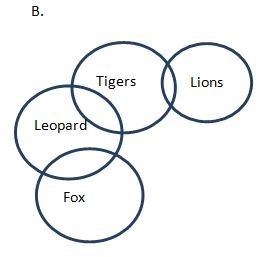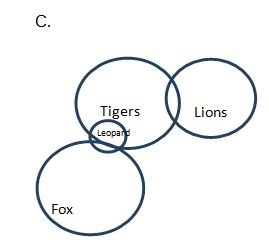Start learning 50% faster. Sign in now
I + E = O, Hence, neither conclusion I nor II will follow. However, Conclusion I and II make a complementary pair, hence, either conclusion I or II will follow. ALTERNATE METHOD: All possible cases: 

 In case A, no leopard is a tiger and in case B & C some tigers are leopard. Thus, either of them is true.
In case A, no leopard is a tiger and in case B & C some tigers are leopard. Thus, either of them is true.
Cash withdrawn by the proprietor from the business for his personal use’ causes
Salary received by the Partner of a Firm is charged under the head
Under which section of the Income Tax Act, 1961, are the provisions related to TDS on salary mentioned?
Under which section of the Income Tax Act, 1961, are the provisions related to TDS on interest other than interest on securities mentioned?
Schedule II in the context of Goods and Service Tax deals with?
The total of the discount column on the debit side of a cashbook is posted to the:
The kind of debts which are needed to be repaid in a short term is known as?
A way by which the companies raise capital without going to the public is known as __________________
A taxpayer may file an updated return for FY2023-24 till what date?
Which of the following inventory methods would reduce tax liability during inflationary period?